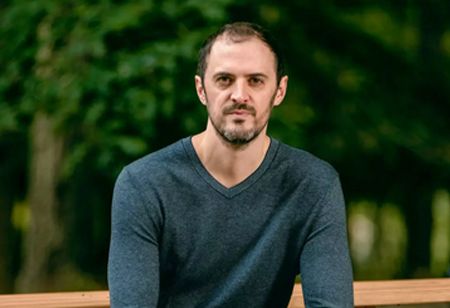
The Rise and Fall of Hindenburg Research and its CEO


The stock market shook for a minute in 2020 when US-based investment research firm Hindenburg Research alleged Nikola, an electric vehicle giant, for making deceptive assertions to secure collaborations with leading automakers eager to compete with Tesla. The US Securities and Exchange Commission charged Nikola with defrauding investors by disseminating misleading information regarding its products, technological advancements, and future business potential. Nikola agreed to pay $125 million to resolve the issue in late 2021. Since then, Hindenburg Research went on a streak, exposing fraud in many top companies. Hindenburg’s reports had caused investors to sell stocks and led to investigations that wiped out billions of dollars from companies, including India’s Adani Group. However, recently, the founder of Hindenburg Research, Nathan Anderson, declared his decision to disband the company. Let’s learn more about Nathan and the reason for shutting down the company.
Who is Nathan?
Nathan is a globally known figure in the finance realm, especially because of his reports that challenge big companies. He found his niche in investigating, identifying and revealing issues and fraud in publicly traded firms.
Early Life and Education
Nathan was raised in a middle-class household in the United States. While attending the University of Connecticut, where he studied international business, he gained knowledge of international money and markets. He quickly developed an interest in how firms operate and how markets respond to their actions.
Career
After graduation, Nathan started working in data analysis and finance in 2004. In addition to his finance profession, he also worked as an ambulance driver in Israel. In 2006, he joined FactSet Research Systems Inc. before going on to work assessing possible investments for private wealth management firms that serve wealthy clients. With strong experience on his side, he established his first business, ClaritySpring, in 2015. But it didn't do particularly well. By 2017, the company’s net capital had dropped to only $58,382, and Nathan ended up in a tough financial situation to the tune of his landlord even starting the eviction process. Due to these difficulties, Nathan decided to launch Hindenburg instead of keeping his broking license.
Hindenburg Research
Most of us have heard about the Hindenburg airship tragedy, which occurred on May 6, 1937, when the German zeppelin caught fire during its landing at Lakehurst Naval Air Station in New Jersey. 36 individuals were killed in the accident, including one ground crew member and 35 passengers and crew members. Paying homage to the tragic incident, Nathan founded Hindenburg Research in 2017. The firm's mission to identify businesses at risk of disaster is reflected in the name. Nathan wanted his company to act as a watchdog, determining whether large corporations were acting honorably. After conducting thorough research, the firm publishes audacious reports accusing businesses of misconduct. Stock prices frequently decline as a result of these reports.
One of the instances involved Lordstown Motors. The management of Lordstown Motors, a startup manufacturer of electric trucks, was reportedly shaken up after Hindenburg Research questioned the number of pre-orders the company had declared for their Endurance model. Due to its current difficulties, it sold a sizable auto assembly plant in Ohio to Foxconn, a Taiwan-based iPhone producer.
The Adani Group Saga
Under Anderson's leadership, Hindenburg Research has examined major corporations like Adani Group, Clover Health, and Nikola Corporation. A report on the Adani Group in 2023 sparked controversy around the world and debate about corporate transparency.
On January 16, 2023, Hindenburg Research made news in India after accusing the Adani Group of stock manipulation and accounting fraud. Regulators charged nearly 100 individuals, including billionaires and oligarchs, civilly or criminally. After Hindenburg Research released a study, stocks of Adani Group firms plummeted just days before Adani Enterprises' $2.5 billion share offering. According to the report, the company had allegedly participated in a brazen stock manipulation and accounting fraud scheme over decades. Hindenburg, which holds short positions in Adani companies through US-traded bonds and non-Indian-traded derivative instruments, key listed companies in the group had substantial debt, placing the group as a whole on a precarious financial footing.
An investor who engages in short selling anticipates that the security price—for example, that of stocks—will decline over time rather than rise. Although the buy low, sell high strategy is at its core, short selling involves the opposite order of transactions: selling high first, then buying low. Additionally, when short selling, the trader typically borrows the securities rather than owning them. In Nathan's words, “We believed that some empires needed to be shaken, so we did. We reviewed the organization's work and the rationale behind its most recent choice.”
Jugeshinder Singh, Chief Financial Officer of the Adani Group, responded to the allegations. He says, “Malicious combination of selective misinformation and stale, baseless and discredited allegations.”
Why is Hindenburg Research Shutting Down?
Nathan's decision to shut down the company is a bit surprising. In truth, he did not point to a specific reason for the decision. He says, “The intensity and focus has come at the cost of missing a lot of the rest of the world and the people I care about. I now view Hindenburg as a chapter in my life, not a central thing that defines me.” He adds, “Over the next six months or so, I plan to work on a series of materials and videos to open-source every aspect of our model and how we conduct our investigations.”